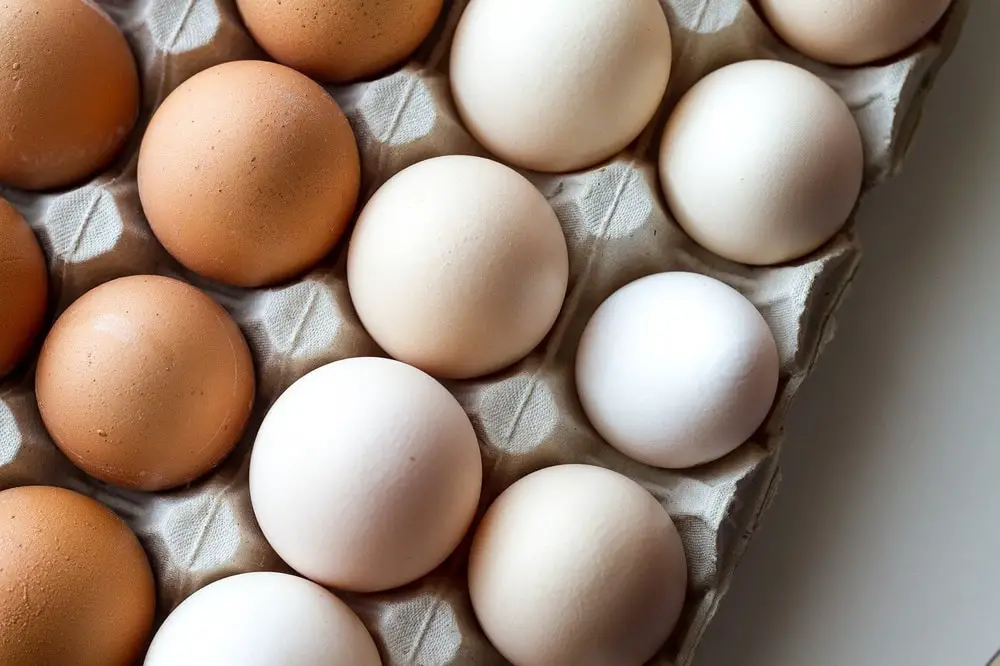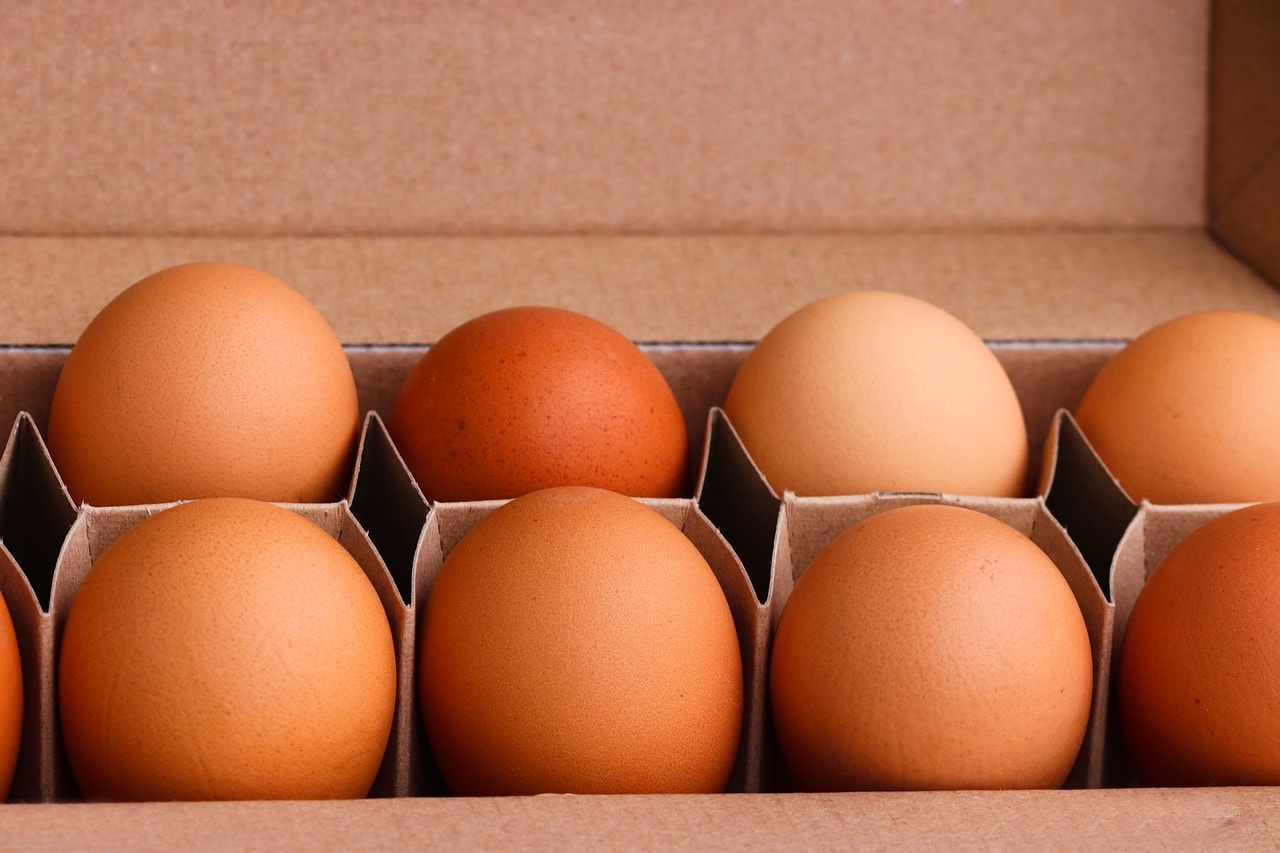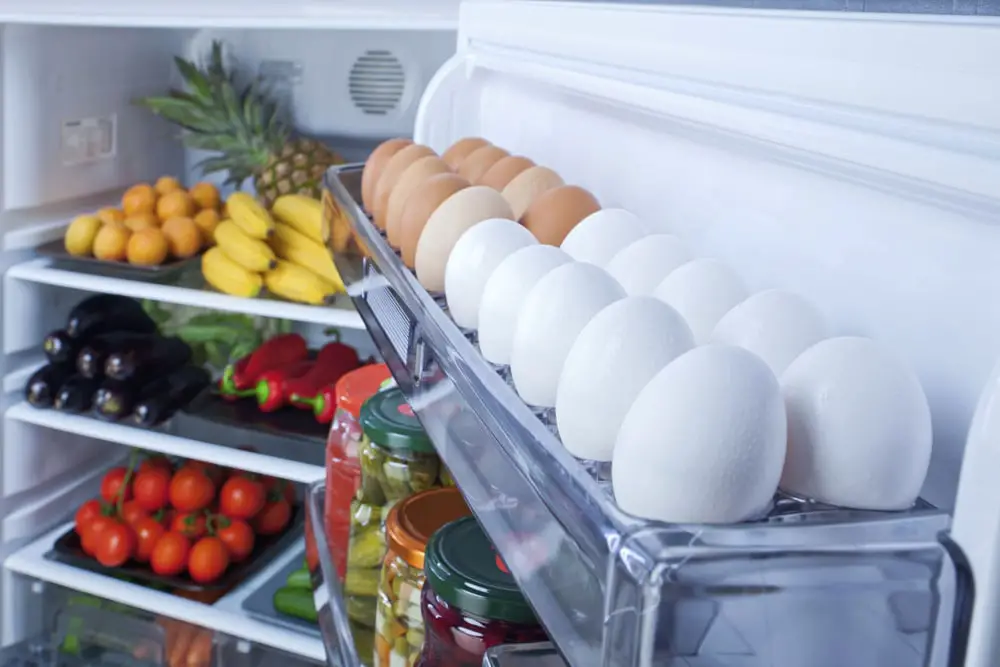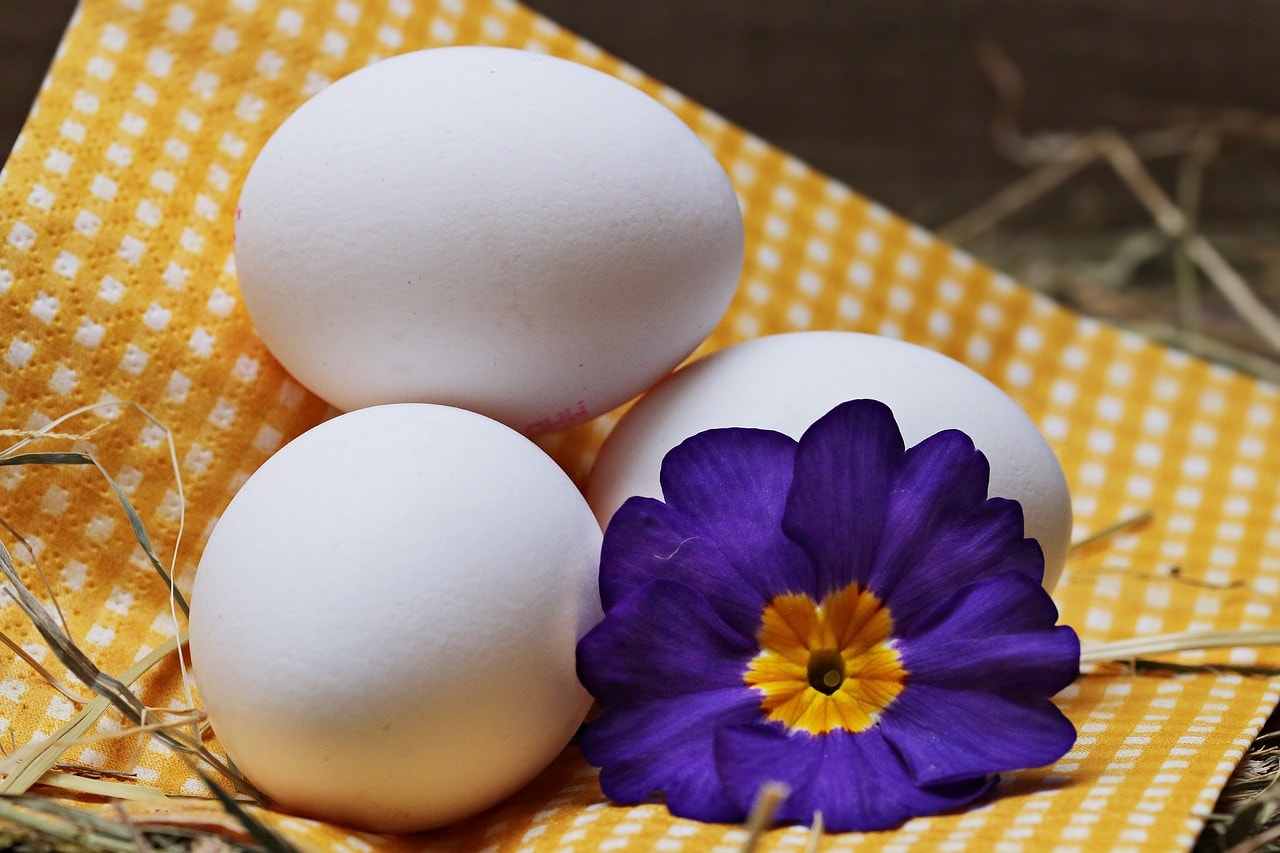This post contains affiliate links. When you buy through our links, we may earn a commission.
We often know whether the food we buy is good or spoiled by looking at the printed date on the paper. Do you do the same with eggs? Probably not. Why do you think people overlook basic things like the expiry date when it comes to eggs? Despite their reasons, it is important to know that eggs go bad too. But first, we need to know how long do eggs last. How do you tell the eggs have gone bad without cracking open the shell is a major headache? This article will try to address everything eggs, from how long they last to ways of making them last.
You only need your senses of smell and sight to know if eggs have gone bad. It is never that complicated. And while at it, what do you normally do with eggs that have spoiled? We may have some ideas. Most importantly, you will learn how to keep eggs from going bad. We wouldn’t want to see you waste a precious yet rare resource like eggs by throwing them away because you think they are expired. Please note that eggs are still fit to eat days after the printed expiry date. But that doesn’t mean you can cook an egg that has spent months in the refrigerator.
How Long Does Eggs Last?

An egg that is kept at normal room temperature (without refrigeration can last for a maximum of 10 days. With refrigeration, it has proven that an egg is still fit to eat a month and a half after it was placed there. However, the average shelf-life of such an egg is approximately 30 days. That does not mean an egg that has been in the refrigerator for 3 months is good to eat.
To determine if the eggs have spoiled or are about to go bad, they are subjected to a simple test. The test, popularly known as the floating test, involves placing the eggs in a bowl and fill it with water.
The procedure is as follows:
- Fill a transparent bowl with water. Pick four eggs randomly from your carton and place them in the water.
- If the eggs sink to the bottom and stay there, then the eggs a good.
- If the egg floats on the service, it means it is not good to cook.
The table below explains your possible results.
| Egg Age | Position Of Egg in Water |
|---|---|
| Fresh | Sits horizontally with close to, or touching the bottom of the bowl. |
| 1 Week Old | Suspended diagonally to the water surface and is slightly above the bottom of the bowl. |
| 1 Month Old | Suspended in water and sits perpendicular to the water surface. |
| Spoiled | Floats to the surface |
How Long Does It Take to Boil Chicken Thighs?
How to Tell if Eggs are Bad, Rotten, or Spoiled?
How does the floating method explain if the eggs are bad, rotten, or spoiled? Well, eggs are naturally porous, but the pores are not big enough to allow in a lot of air. As the egg gets old, the pores widen and increase in number. More air gets into the egg and makes it light. Such an egg will be lighter than water and will float on it. A fresh egg has less air in it and will sink to the bottom when placed in water.
What Does Mahi-Mahi Taste Like? – Ultimate Guide on Mahi-Mahi
How to Store Eggs to Extend their Shelf Life

How long are eggs good after sell by date is a wrong question to ask because it shouldn’t get there in the first place. It is quite uncomfortable to see your eggs go bad during winter when your birds are producing fewer eggs than normal. Sometimes the temperature change can persist to become extremely hot or cold. Your eggs will spoil at a faster rate than your birds can replace. How do you preserve the few eggs you have left for days to come? The following ways are easy and safe to store eggs to extend their shelf life.
Storing with Sodium silicate (Water Glassing)
Sodium silicate forms a gel when mixed with water. Start by boiling the water. Prepare the mixture of sodium silicate and mix it with the water in a ratio of 1:1. Pour the mixture into a sterilizer and wait for it to cool. Take your eggs and gently place them in the mixture. Let them sink slowly until they are submerged. Cover the container tightly and place it in a cool place. But make sure the temperature is not cold enough to cause freezing.
The water Glass method works by protecting the eggs shells from external conditions that may breach it and allow in air. The Water Glass method can preserve eggs for as much as a year and does not add any weird flavors.
Mineral Oil Storage
Generally, all fats are used to store eggs, but using mineral oil gives excellent results. The oil coats the eggshell and seals off all the air. It also protects the egg from cracking or drying excessively. Although this method is cheap, the eggs must still be refrigerated to last longer. The eggs should be stored in an upright position in their carton before placing them in the refrigerator. Ensure the eggs are turned regularly to prevent the York from settling.
As the bond between the oil molecules starts weakening, the egg becomes more and more exposed, and the higher its chances of spoiling. It is therefore advisable to keep applying the oil regularly until the time comes to eat it.
Liming
Food-grade calcium hydroxide is combined with boiled water to create a lime mixture that preserves eggs for months. The paste is cooled and poured into a crock. Once the paste has cooled down, prick each egg with a needle and place it in the solution, in an upright position. Although limed eggs stay for over a year in the preservation state, the eggs might develop a certain taste. Although not very comfortable, one can put up with the taste and focus more on the omelet put before them.
100-year Egg
The method was used by Asians to preserve eggs for hundreds of years. It involves preserving the eggs in a mixture of clay, salt, ash, quick lime, and rice hulls. A fully cured 100-year egg can last for months. It is easily recognizable through its creamy, stinky, gray yolk. Modern egg preservation based on this old method involves placing is treating the egg with calcium hydroxide or sodium carbonate. The egg is then aged and wrapped in plastic.
It is surprising to note that the ancient preservation process is much more effective than the modern one. The other name used to refer to this method in ancient times is the thousand-year egg. Although the egg didn’t last a thousand years, it must have lasted long enough to be called that.
How Long Do Eggs Last in the Fridge

Refrigeration is probably the best storage method for eggs. How long do eggs last in the fridge precisely? Assuming the fridge, you are using is in perfect condition, the eggs should go for up to 45 days. However, the temperature of the fridge may not remain the same the entire time. things like temporary power outages can compromise the condition of the eggs in the fridge. To be safe, store eggs in the fridge for a maximum of 30 days. Otherwise, you may end up consuming spoilt eggs.
What Does Trout Taste Like – Know the Secrets Before You Taste
How to Use Extra Before Your Eggs Go Bad
Once your eggs start approaching their expiry date and you don’t see any possibility of using all of them, think fast. Boiling is the first thing that normally comes to your mind. While this is a viable option, it can only extend the shelf life of eggs for not more than one week. But it is better than letting them spoil, right?
Alternatively, you can bake the extra eggs quiche. The quiche can then be microwaved one slice at a time. just like the case with boiling, baking can only increase your eggs’ shelf life for a week, probably less. The bottom line is to think first and figure out how to put the extra eggs into use before they go bad.
How Long Are Eggs Good for When Prepared in A Dish

Eggs can stay in a dish for about two hours after preparation. However, they can stay longer if refrigerated after preparing. When the eggs are refrigerated, they should be heated to 50 degrees before eating. Why is heating necessary? The reason is simple; bacteria that cause sickness grow rapidly when the egg is still warm. After two hours the bacteria would be too many. Reheating the eggs kills the bacteria and makes it safe to eat. The eggs can also be kept in ice if they are going to stay more than 2 hours before serving.
Conclusion
Eggs can be lifesavers if they are taken care of through preservation and proper storage. And the first step towards that is knowing how long eggs last. Although not considered a staple food by any community, it is arguably the most common meal around the world. What makes eggs amazing is that they can be eaten for breakfast, lunch, and supper. And cooking? Simply the simplest yet most diverse. A fried egg tastes very different from a boiled one. Similarly, a scrambled egg would taste different from an omelet. But the egg remains egg.
